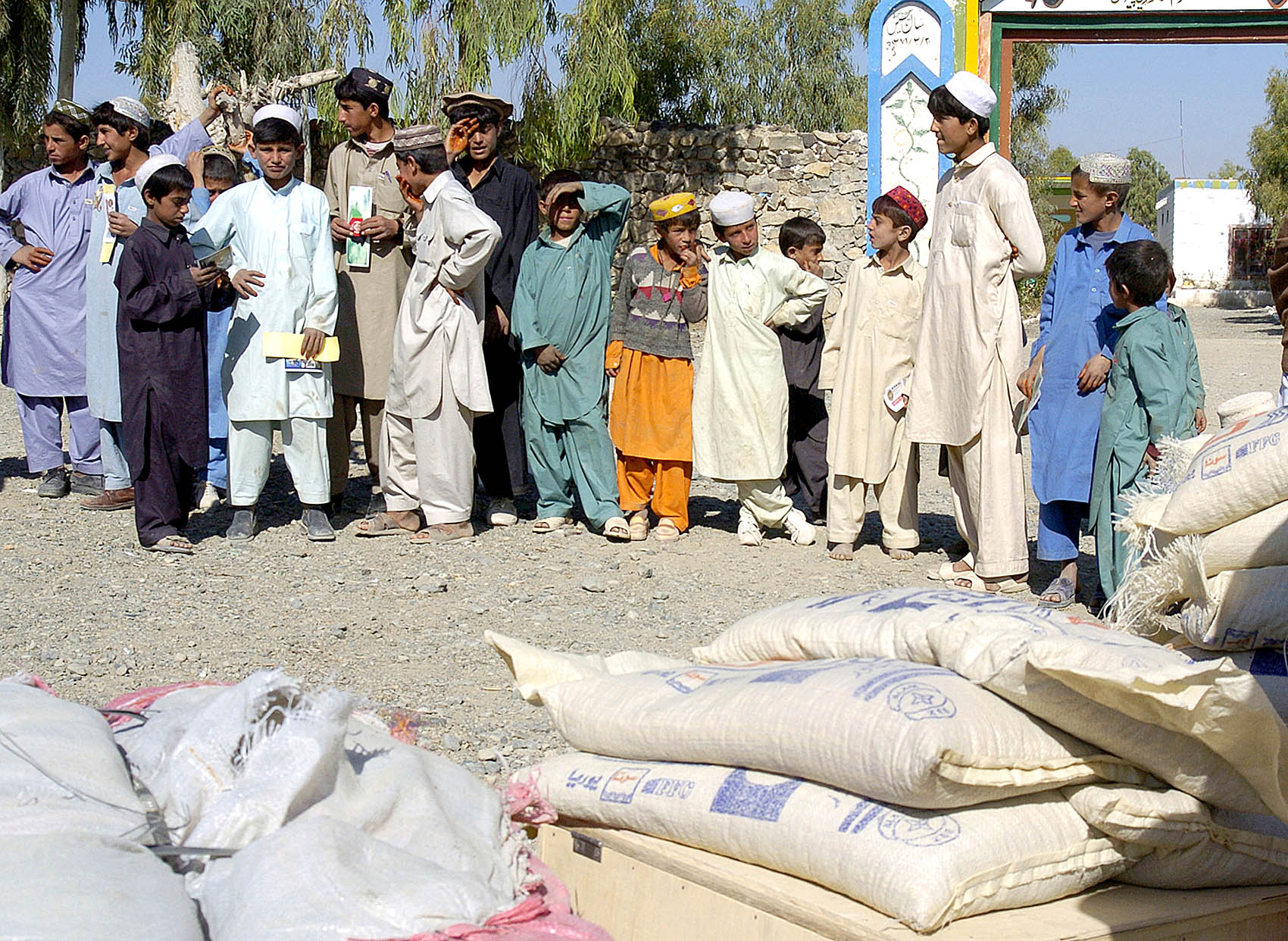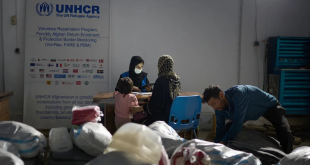By Akhtar M. Nikzad-KABUL: More than 40 percent of children suffer from malnutrition and around 95 percent of women faced with lack of vitamin D fortification in Afghanistan. Import of defective food items from Pakistan and other neighboring countries have created drastic public health problems in the country.
During an interview with Afghanistan Times, Minister of Public Health said that most of the food items imported from neighboring countries lack micronutrients (essential vitamins) and has created a serious public health problem for Afghans.
Ferozuddin Feroz said that currently 45 percent children are suffering from maturation and 95 percent women are faced with lack of vitamin D fortification.
He said that Afghanistan imports 90 percent of its food necessities from neighboring countries and the food stuffs are not fortified with micronutrients.
“All the edible items that are imported from neighboring countries not only lack essential vitamins but are also harmful for health. For instance, the cooking oil is very dangerous,” he mentioned.
He termed lack of a particular law as a major challenge in front of the ministry to prevent the low-quality food items from making way to Afghan markets. The minister said that the MoPH alone could not deal with the challenge but support of other relevant organizations is necessary.
“After we succeed in approving a particular law only then we will be able to prevent flow of unhealthy and unfortified food to the country,” he said.
The Global Alliance for Improved Nutrition (GAIN) and World Food Program are working jointly with regional countries to observe the food fortification in their commercial dealings.
Muhibullah Wadati, a representative of GAIN in Afghanistan, said the food items imported from neighboring countries to Afghanistan are not fortified with micronutrients and causing health problems.
He said that GAIN is working with regional countries to find ways for fortification of food items and held several meetings with Pakistani and Kazakh officials to export fortified food items to Afghanistan.
He said that Afghanistan needs a particular law and a monitoring system to check quality of the edible items and prevent unfortified food from making way to the country’s markets.
“GAIN and World Food Program are fortifying the flour in all 30 mills and fortifying oil in three mills in Afghanistan,” he said.
GAIN plans to improve access of those to the healthier food who are at risk. It was established in 2002 working with 30 countries and 50 partners to improve the life of 1.5 billion people through food fortification.
WHY FOOD FORTIFICATION
Often referred to as “hidden hunger,” micronutrient malnutrition is a serious public health problem affecting over two billion people worldwide.
Food fortification is the practice of adding essential vitamins and minerals (e.g. iron, vitamin A, folic acid, iodine) to staple foods to improve their nutritional content. Fortification is a safe, effective way to improve public health that has been used around the world since the 1920s. Commonly fortified foods include staple products such as salt, maize flour, wheat flour, sugar, vegetable oil, and rice.
WHY ARE THEY IMPORTANT?
Proper intake of vitamins and minerals can mean the difference between a healthy, productive life, and a life fraught with illness. Micronutrient deficiencies, which affect over two billion people around the globe today, are the leading cause of mental retardation, preventable blindness, and death during childbirth. They are responsible for neural tube defects – the second most prevalent class of birth defects in the world – and play a significant role in reducing the most common form of birth defects (cardiac). A person’s chances of dying from measles or diarrhea are between 30 – 50%. This number can be significantly lowered with proper micronutrient health.
A lack of these important vitamins and minerals also has a profound impact on the body’s immune system. Immune systems weakened by a lack of micronutrients puts children at increased risk of illness, making them more likely to miss school. Diminished mental capacity and increased absenteeism (due to iodine and iron deficiency) lead to lower academic achievement, with lifelong consequences. Adults are more likely to miss work either due to their own illness, or to care for sick children. Both add to the load of already overburdened healthcare systems.
Even those who are not sick suffer diminished ability concentrate and reduced physical and mental productivity, preventing them from reaching their full potential and increasing the likelihood of further disease and disability. What emerges is a grim cycle compounded by insufficient healthcare and education, poor sanitation, and disease. A mother who is lacking key nutrients not only increases her chances of dying during childbirth, but also risks not being able to provide her child with the proper nutrients needed to begin life.
According to the statistics provided by the health ministry, Afghanistan is one of the regional countries with high maternal mortality rate. In every two hours one mother dies while giving birth to a child. The ministry hopes to start fortification of food in collaboration with its international partners.
Anemia, mental illness, bone pain, eye and heart ache are the common illnesses, broke out in the country and due to lack of efficient healthcare services majority of people go to Pakistan for treatment and annually pay millions of dollars. Health experts believe that if the ministry of health convinces its interactional partners to fortify food in Pakistan and other neighboring countries, the diseases would decrease in the country.
 Afghanistan Times
Afghanistan Times




